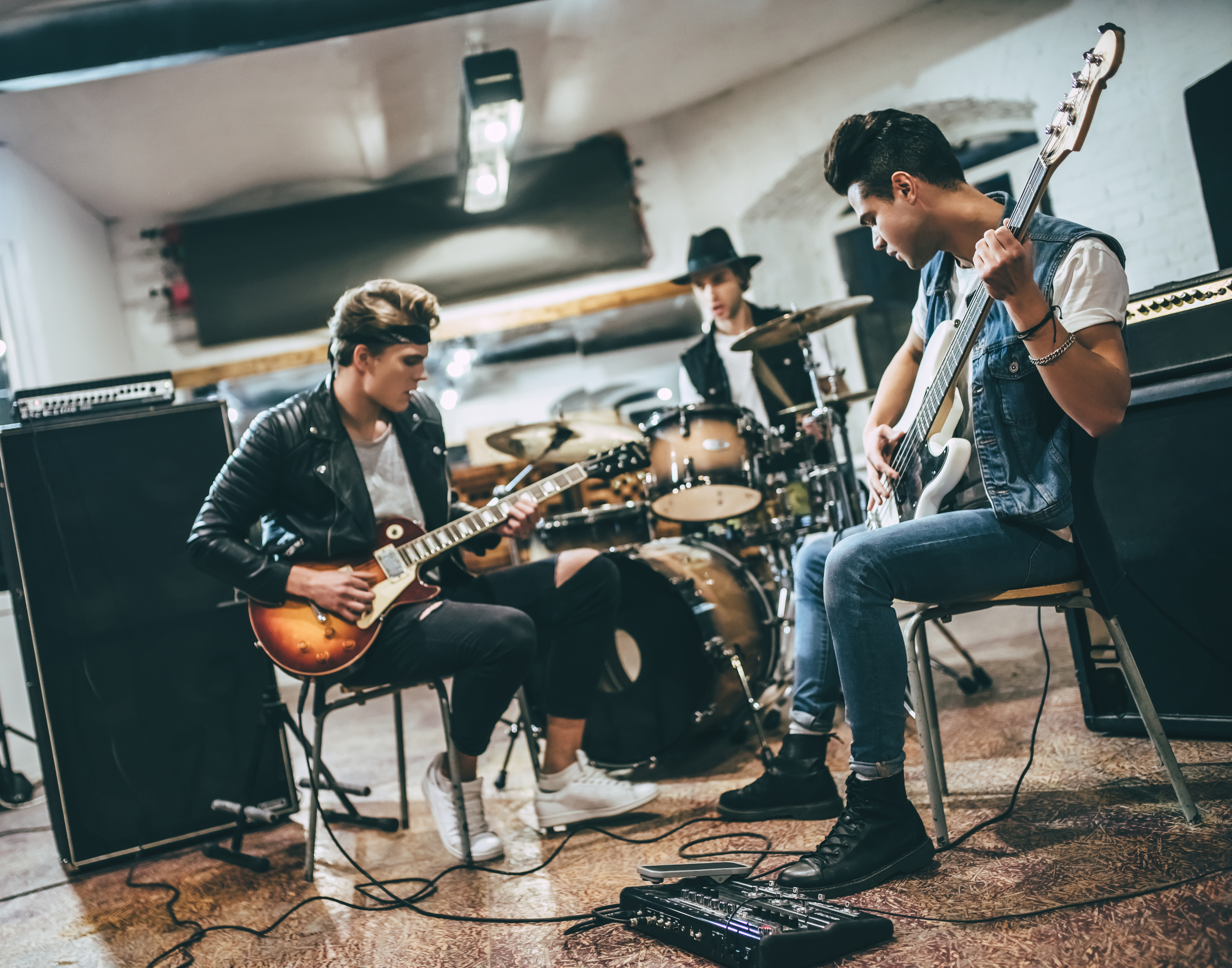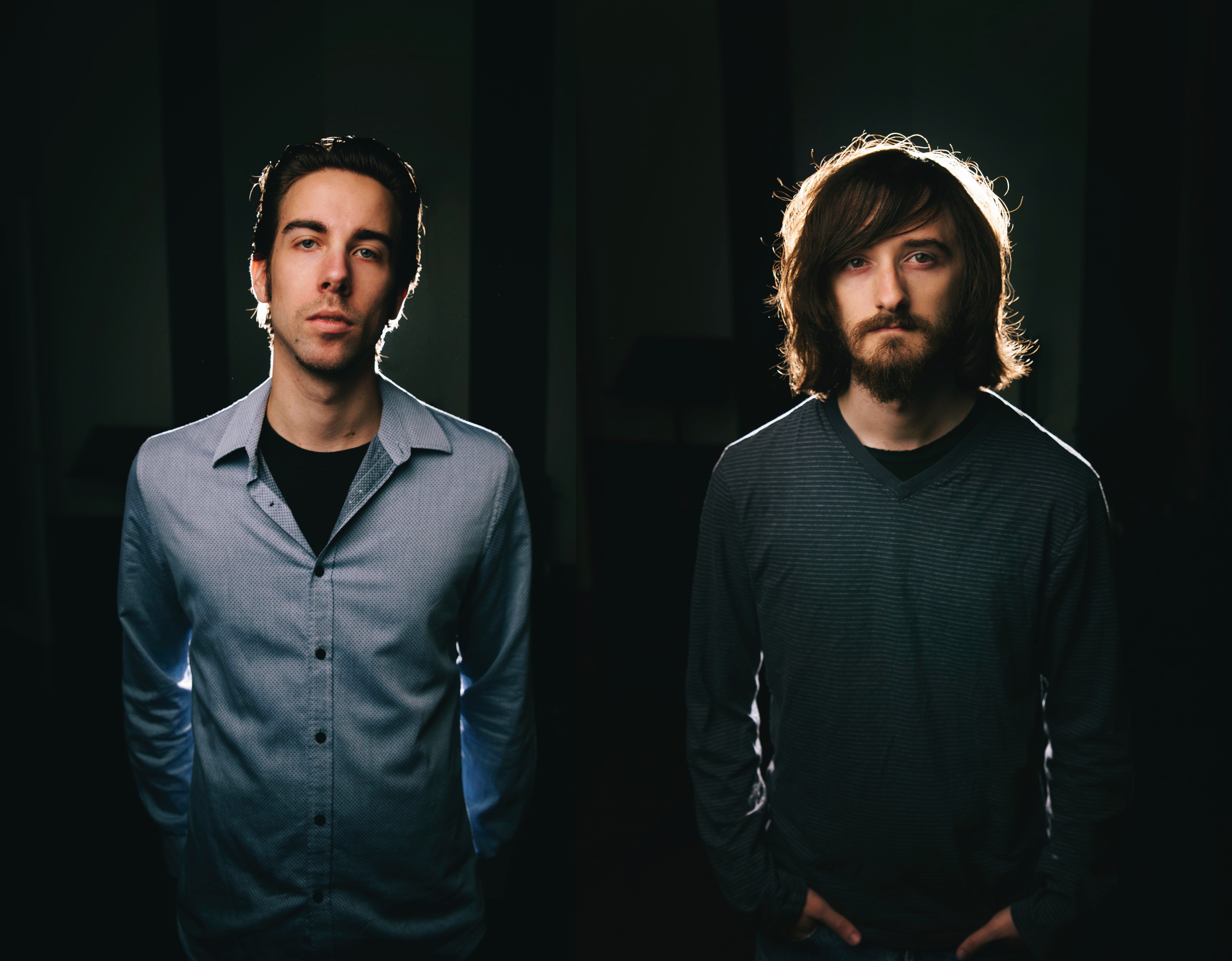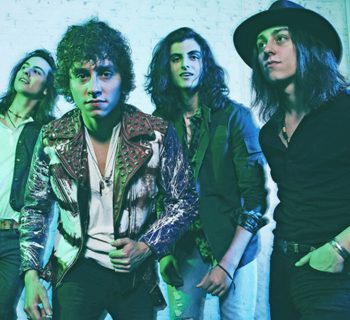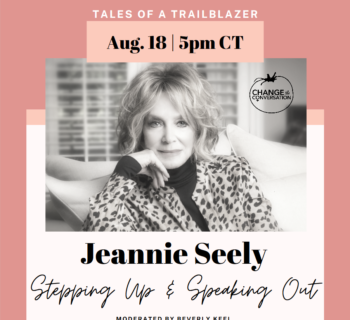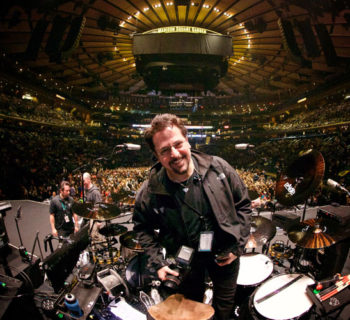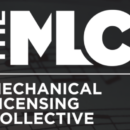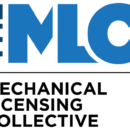Over the last three or four years, singer-songwriter Luke Combs has emerged as one of the leading lights and brightest young stars in country music. The Asheville, NC native burst onto the scene with his album This One’s For You (River House Artists/Columbia Nashville) in 2017 and has not looked back. His trademark soul-infused and muscular vocals have graced hit singles “When it Rains it Pours,” “Hurricane,” “She Got the Best of Me,” “One Number Away” and “Beautiful Crazy.” Combs’ latest is a long-awaited EP, The Prequel. His current single, “Beer Never Broke My Heart,” is garnering heavy airplay and media attention. But, perhaps, his crowning achievement, thus far, is recently being asked to become a member of The Grand Ole Opry, which happened after Combs’ sold-out concert at the Grand Ole Opry on June 11th. With a banner year that also includes top honors in multiple country music categories, Combs is in the midst of a headlining tour that will assuredly conclude 2019 on a high note.
Music Connection: Tell us about your experience being inducted into The Grand Ole Opry. That must’ve been amazing for you.
Luke Combs: It took me by surprise! I think the craziest thing about it is that I genuinely had no idea. I’m sure you know how things operate sometimes. Often you find out you won an award or did something before you ever get to that moment. So to have that genuine surprise, shock and speechlessness was something I thought would never happen to me, for sure. And being asked to become a member of The Grand Ole Opry couldn’t be cooler.
MC: You were performing at the Grand Ole Opry that night when they sprung that on you, right?
Combs: Yeah, they kinda walked out at the end of a song. And I was sort of aware at that moment that that’s how they usually ask people to join the Opry. But you never think that would happen to you.
MC: Your music seems to really connect with fans on a personal and authentic level. That gets referenced a lot in the media and whatnot. What’s your take on how your music affects people?
Combs: It’s funny, I was watching a documentary last night on Alan Jackson and it was talking about what the fans love about him so much. And it talked about his writing songs for those people that nobody ever thinks about writing songs about. I think that’s part of it. I think country music can be so stereotyped as being unintelligent or it’s not this thing or that. But everybody goes through relationship problems or doesn’t have the best days of their lives. But, regardless of genre, if you can write a great song about these things there’s no reason that, just because it’s a country song, and that just because someone that traditionally doesn’t like country music hears it, they’ve got to admit it’s a great melody and they can relate to it.
MC: Can you elaborate on that?
Combs: Well, I think there are predetermined stereotypes by some people about what is a country song. There is this thing with some people where they will discredit a song because they just don’t listen to country music. People still say I listen to everything but country. I think I like to show that you can listen to every other kind of music and like country, too.
MC: Your latest release is called The Prequel. Is this primarily unreleased material?
Combs: No. People thought that, for sure. But I wanted to have it be kinda vague, a bit. Actually what it was is, I recorded the bulk of the This One’s for You album in late February/early March of 2016. For me that album has been around for a really long time. There’s a lot of stuff I’ve written from the time I’ve recorded that album to, not only when it came out, but the time that it’s not been out. That has been, like, 3 ½ years now from the time I recorded it to when The Prequel came out. I get kind of cabin fever with that stuff, too, where you’re constantly playing the same stuff every night. But you’re at home writing new material and new songs. I get really excited when I have new songs, because I wanna play it for people. I want them to hear it because that is the gratification of writing it.
MC: So what were the events that led to your unveiling this current album?
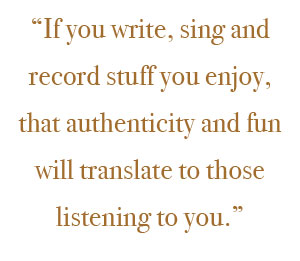 Combs: I had been playing some of these songs from The Prequel at different radio events and venues over the course of my time in Nashville since the record came out. It’s just stuff that fans have recorded on their phones and we’ve played a few times at shows. And my fan club has been talking about these songs for a while now. I just wanted to give them songs that they’ve been asking to hear in between the time to put a full second album out.
Combs: I had been playing some of these songs from The Prequel at different radio events and venues over the course of my time in Nashville since the record came out. It’s just stuff that fans have recorded on their phones and we’ve played a few times at shows. And my fan club has been talking about these songs for a while now. I just wanted to give them songs that they’ve been asking to hear in between the time to put a full second album out.
There are a lot of logistics that come with rolling out a whole album. This was a cool way to give them something new where I didn’t have to do the whole album campaign thing. I could just say here’s some new songs for the summer and these are the songs that you guys have heard on YouTube, at shows, on your friend’s cell phone or whatever. And I wanted people to have access to them without having to pull them up on a YouTube video while they’re driving down the highway or something. I just wanted to put out something new without the formal release process, I guess.
MC: And just the timing of having something new out while you’re touring is a cool thing, right?
Combs: Yeah, it definitely is easier. But it’s not so much convenience as a timing thing. I wanted to get these songs out in time for summer and CMA Fest. That wouldn’t have been an option if I tried to put a full album out. Actually I think I have enough material to put out two albums tomorrow. But the process of that is not as easy as simply having songs written, tracked and ready to go in the studio. There is so much more that goes into it beyond that.
MC: Your vocals have really evolved over time since your debut on the national scene three or four years ago. You sounded strong from the beginning, but what techniques do you use to develop your vocal chops and keep them in shape? Do you have a regimen?
MC: I really don’t, as surprising as that sounds. I get as much sleep as I can. I don’t stay up super-late most nights. That’s probably not what people wanna hear me say. I’ve been singing since I could talk. It’s just something that I naturally gravitated toward for some reason. It’s always just something that I’ve loved to do. So, once I picked the guitar up and added that in there I was already so comfortable with my voice, and how to use it and singing in front of people, throwing the guitar in there was just a natural thing. I really just focused on playing the guitar, which is something I didn’t know how to do. I was never on stage thinking I was gonna miss notes or sing the wrong words, because I was already so comfortable with that. I was most concerned with making sure my chord changes didn’t sound clunky.
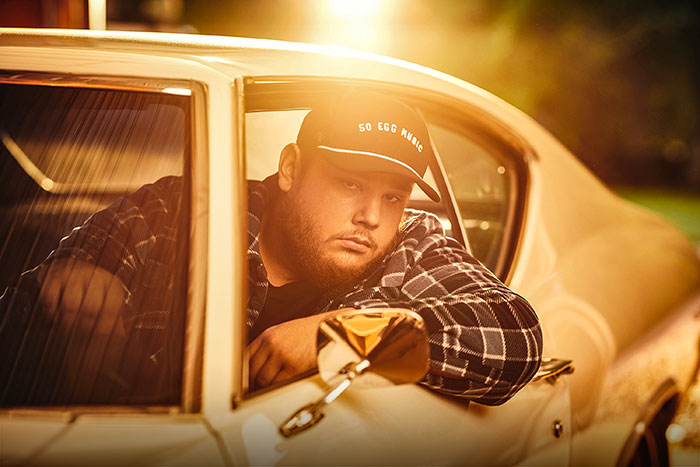 MC: You wanted your guitar playing smooth so it blended well with your vocals.
MC: You wanted your guitar playing smooth so it blended well with your vocals.
Combs: Yeah! That first four or five years playing guitar was the only thing I was focused on. And that’s worked in my favor a lot. It is a tough thing and I’m lucky to have a natural affinity for it.
MC: I’ve read and heard many things about you bringing country music back. What is your take on the current state of country music and how do you factor in to that mix?
Combs: I think I’m a big proponent of people just doing what they wanna do. I think it goes back to the concept of saying there’s only two kinds of music—good and bad. Country artist or not, if they’re putting out music that they enjoy and enjoy performing, they’re proud of it and their fans love it, I don’t see any problem with that. And it’s so hard to get into that discussion of what is or isn’t country music, you know?
It’s about writing songs that people like, wanna hear and buy tickets to wanna see. And I think that can be done on so many different levels––from genre to genre and from within genres. There are 20 different kinds of pop, hip-hop, blues and so on. Country is one of those genres where people think it has to be this way or that way. I don’t think that happens so much in other genres and I don’t know why that is.
MC: So, you are open to artists who fuse other elements into country music as long as it’s for real?
Combs: Yeah, if it’s something that they’re taking seriously and are proud of it. I don’t care if you call it Americana, pop or whatever.
MC: Who are some of the people you collaborate with on songwriting?
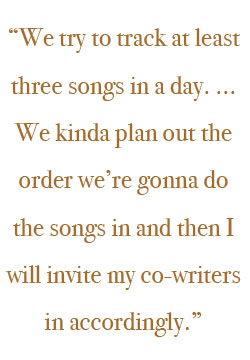 Combs: I’ve kinda written songs with the same guys ever since I got to Nashville. When This One’s for You was recorded I think there were maybe two people that had publishing deals on the whole album, one of which was not me. It was all people that I met in Nashville at writers’ rounds or just a bar where we met and would write a song or two. Over the course of eight months to a year, you kinda figure out these are the people that I feel comfortable writing with, that I write good songs with and that I like being around whether we’re writing or not. These are the people I kinda surround myself with constantly.
Combs: I’ve kinda written songs with the same guys ever since I got to Nashville. When This One’s for You was recorded I think there were maybe two people that had publishing deals on the whole album, one of which was not me. It was all people that I met in Nashville at writers’ rounds or just a bar where we met and would write a song or two. Over the course of eight months to a year, you kinda figure out these are the people that I feel comfortable writing with, that I write good songs with and that I like being around whether we’re writing or not. These are the people I kinda surround myself with constantly.
And a lot of those people have a lot of stuff that will be coming out in the near future. There’s a couple new folks in the mix too, but it’s folks I’ve been working with for two-and-a-half to three years now. I just try to constantly write with the same folks because we have a comfortability with each other. We know what to expect from each other in the writing room, or how to let each other be and work. It’s a really fun and relaxing process, as opposed to trying to get in a room and write a hit for a particular artist and have it sound like this or that. We just write together and have fun doing it.
MC: Who, specifically, are some of these co-writers?
Combs: Yeah, my current single (“Beer Never Broke My Heart”) was written by myself, Randy Montana and Jonathan Singleton. And I guess they could be considered newer guys that I’ve been writing with. We’ve been writing close to three years together and they’re great. And Ray Fulcher, one of my best friends in the world, has seven or eight songs on my first record and a couple on The Prequel with me. I’ve also written two number ones with my stage right guitar player Rob Wilford and James McNair. There are a lot of people that I enjoy writing with on a consistent basis that are a big part of the process.
MC: What are some of the recording studios you like to work in and what’s your process in choosing a producer?
Combs: I’ve had the same producer on the This One’s For You album, EPs, The Prequel, right up to the stuff I’m working on now. His name is Scott Moffatt and we could not be more different from each other. It’s kind of an opposites attract thing. He’s just so meticulous and I’m more laid back about things. He’s such a perfectionist but it’s a good mix. There is stuff that I’m adamant about or he feels strongly about. But, at the end of the day, our working relationship is a productive process for both of us.
MC: And what do you look for in a studio?
Combs: We’ve recorded a lot of songs in minimalistic settings as far as studios go. I’ve watched documentaries on other artists and they’re recording in these massive studios, with 25-30 people in there all doing their thing. We try to just keep it with me and Scott in the studio. And then there are people from my management team that pop in here and there throughout the day. But they are pretty hands-off with the music part of it, which I do appreciate.
MC: What is your method for writing and tracking new material?
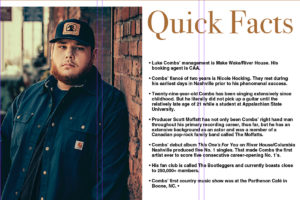
Combs: Well, we try to track at least three songs in a day, as far as getting the bare bones of the song put together for that day. We kinda plan out the order we’re gonna do the songs in and then I will invite my co-writers in accordingly. And we sit in the studio and get some input with each other on the songs and watch them come to life. And that’s a cool experience to have with those guys because I’m not sure a lot of people do that. I think it’s more of a private process for a lot of other artists. You know, for people that cut a lot of outside stuff, they might not even know much about who’s written the songs they’re recording.
So, I think the unique thing is bringing those guys in, fostering that relationship that I have with them and letting them know that I appreciate their input. As far as I’m concerned, whatever we write together is as much their song as it is my song. And I really love hanging out with the people I write with. I don’t necessarily have a ton of free time to say “Hey, come over and swim in the pool.” But, it’s just a cool way to hang out and watch these songs come to life.
MC: What’s the best and worst career advice you’ve ever received?
Combs: I don’t know about the worst advice. The best advice might sound cliché, but that’s to write what you like. And don’t try to chase anything. I might’ve gotten some bad advice, but I just didn’t heed it. If you write, sing and record stuff you enjoy, that authenticity and fun will translate to those listening to you.
Contact [email protected]

